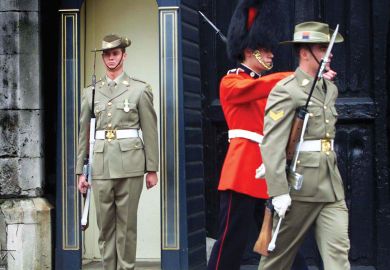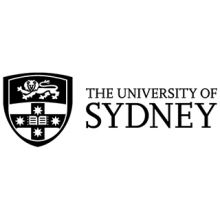Choosing a new vice-chancellor is a momentous decision for any university. And it is the single most important job of chancellors, who can feel the weight of responsibility for decades to come, according to one leader who has just been through the process.
Simon McKeon, who has been chancellor of Australia’s Monash University since 2016, has presided over the institution’s first leadership change in almost a decade – a process he described as both fascinating and gruelling. “It’s a combination of doing all the hard work, due diligence and really knowing what you’re dealing with,” he told Times Higher Education.
“But I’m going to be quite honest and say, crossing your fingers at the same time. You feel the weight of a single decision at a point in time having ramifications for years [for] tens of thousands of people. I’m not going to be so stupid as to say that everyone always gets it right. At the governance level, when you’ve made a decision, you look back for decades and say, ‘What if?’”
He said he felt “true excitement” that Monash’s council had settled on former deputy vice-chancellor Sharon Pickering as the university’s new chief executive. “Relief? I’m not sure. Give me two or three decades, then I’ll talk about relief.”
A former boss of the Macquarie finance group and 2011 Australian of the Year, Mr McKeon is a governance veteran who has chaired the boards of many corporate, government and community organisations. He said the roles always had “a little bit of commonality” despite being situated in “vastly different” sectors.
One common thread was that the appointment of the next permanent chief executive was invariably considered the “most important task” of the governing body. Another was that micromanagement by governance “part-timers” was always a mistake – partly because it led to “bad decisions”, but mostly because it undermined trust.
“I’ve been in management much more than I’ve been in governance,” he said. “I roll my eyes every now and then when elder statespeople, who have been absolute champions in other sectors…have opinions [on] deep management issues. Uninformed people trying to pretend they can make detailed decisions…get in the way of what should be a very good working relationship.”
Academics often bristle when universities are likened to businesses, regarding corporate takeover – particularly of governance bodies – as the wellspring of the sector’s problems. Mr McKeon said a common theme, during consultations over the next vice-chancellor, was that Monash should not emulate the University of Sydney and Charles Sturt University in recruiting a leader from outside the sector.
The argument was that the institution should not be run by someone who had “not seriously invested” in an academic career. Mr McKeon challenged the view. “Why do we close off possibilities without really good evidence? Is there no room for external experiences here? Are all the learnings contained within the sector?”
Reflexively dismissing corporate behaviour in the university sector “doesn’t take you anywhere”, he said. “It depends what they’re saying. It might be right; it might be wrong. The right thing, I think, is just to take the discussion further.”
One aspect of the leadership turnover process at Monash had surprised him, he said. “Right at the very start, there was an expectation that I would sit down with…groups of academics or research staff, the union, students, the list went on and on. It was an opportunity for them to tell me [about] the type of person that would serve the university best.
“I haven’t been through such a process anywhere else in my life. I was a bit sceptical about it. I thought it would be a waste of time. It was definitely not. They were fascinating discussions. I learned a lot. One or two people I was talking to might have learned something as well.”
Like many universities, Monash engaged an executive search firm in the “global” hunt for its next chief. And, like the Australian National University in September, it settled on an internal applicant. Most Australian vice-chancellors recruited this decade have come from within the country, and often within the institution.
Mr McKeon said the executive search service had been warranted, given the importance of the task. The job had included initially compiling a longlist of 300 potential candidates. “We made them work hard.
“We ran a search process ourselves to make sure that we felt that we were getting the very best firm that we could. I might be concerned about a lot of things in the university sector, but as to whether these people earned whatever we will ultimately pay – that is not one of my top-10 issues.”
Register to continue
Why register?
- Registration is free and only takes a moment
- Once registered, you can read 3 articles a month
- Sign up for our newsletter
Subscribe
Or subscribe for unlimited access to:
- Unlimited access to news, views, insights & reviews
- Digital editions
- Digital access to THE’s university and college rankings analysis
Already registered or a current subscriber?










